Aryadeva’s 400 Stanzas with Geshe Yeshe Thabkhe (2013-17)
Teachings by Geshe Yeshe Thabkhe on Aryadeva’s Four Hundred Stanzas on the Middle Way given at Sravasti Abbey and Tibetan Buddhist Learning Center, New Jersey. With interpretation into English by Joshua Cutler.
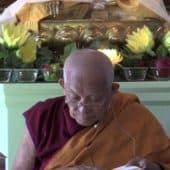
Chapter 8: Verses 185-200
Geshe Thabkhe concludes the teachings on making the mindstream receptive to the development of spiritual paths.
View Post
Overview and Chapter 9: Verse 201
Geshe Thabkhe gives an overview of the path and begins teaching on general refutation of permanent functional phenomena.
View Post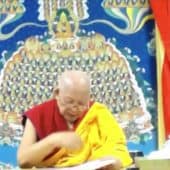
Chapter 9: Verses 202-211
Geshe Yeshe Thabkhe continues teaching on refuting permanent personal self, uncompounded space, and permanent time.
View Post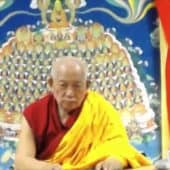
Chapter 9: Verses 212-218
Geshe Yeshe Thabkhe teaches verses refuting the existence of permanent functional phenomena like partless particles.
View Post
Chapter 9: Verses 219-225
Geshe Yeshe Thabkhe teaches verses refuting the existence of permanent partless particles and truly existent nirvana.
View Post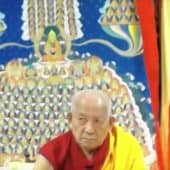
Chapter 10: Verses 229–237
Individual refutation of the self posited by non-Buddhist schools, in particular by Vaisesikas and Samkhyas.
View Post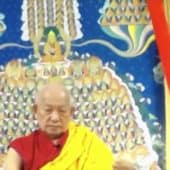
Chapter 10: Verses 226-228
Geshe Yeshe Thabkhe starts teaching on individual refutations of the self that is put forward by various non-Buddhist schools.
View Post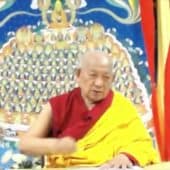
Chapter 10: Verses 238-246
Geshe Yeshe Thabke continues to challenge our instinctive view of the self as permanent and independent.
View Post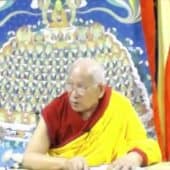
Chapter 10: Verses 247-250
Does selflessness mean nonexistence? How to avoid the two extremes of nihilism and eternalism and find the Middle way?
View Post
Chapter 11: Verses 251-258
Does time exist substantially? How do past, present, and future really exist?
View Post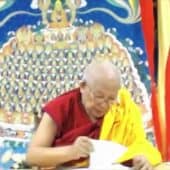
Chapter 11: Verses 259-265
Refutation of lower Buddhist schools’ view of permanent future phenomena.
View Post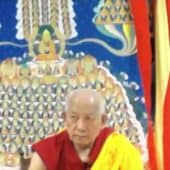
Chapter 11: Verses 266-274
Teachings on refutation of substantially existent duration and on impermanence.
View Post